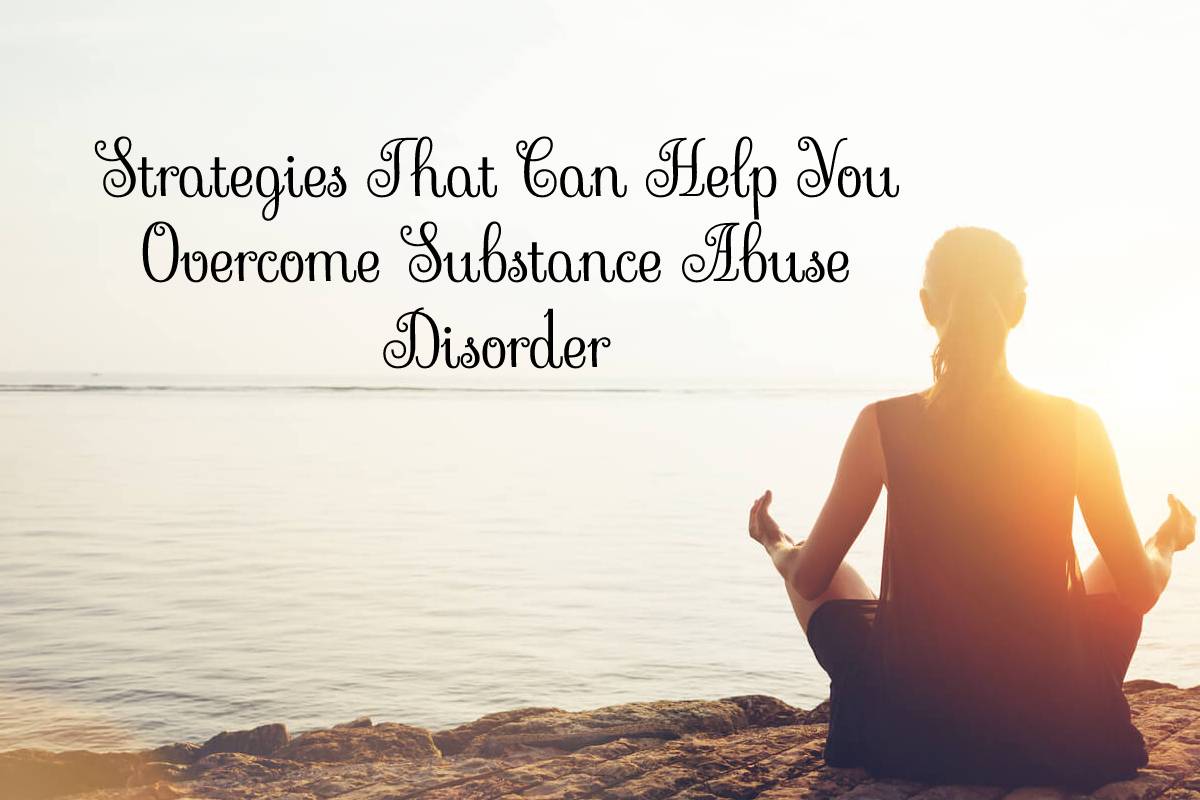Overcome Substance Abuse Disorder – Recovery from any substance, whether it is alcohol or drugs, is definitely a journey, but it is also a state of mind. Wanting to recover from the dependency on a drug is in anything but a cause of shame; rather, it is choosing a dignified living.
The patient simply has to acknowledge the problem and ask for help. Then, of course, they will have their close friends and family who are really willing to help. But they will also have experts from detoxification centers and therapists from rehab centers to motivate them.
It is all about seeing the positive side at the end of a recovery, and a patient should be constantly reminded of this. If you are looking for proven strategies that will help you overcome substance abuse disorder, you have reached the right place.
Table of Contents
Strategies To Overcome Substance Addiction
Remember that there is no one rule for this. But, you can definitely start with these, as they have been proved by experts. These have also recorded the highest success stories.
1. Inpatient Detox
Inpatient Detox is when you pack a minimum of your belongings and move to a detoxification center. You stay there for the timing required for your recovery and continue your treatment.
If you find yourself relapsing again and again, even though you have made the conscious decision to recover, then an inpatient facility is an efficient solution for you. You will have a safe environment to recover from your substance abuse disorder.
They will have medication, therapy, and even alternative activities that will help them get into a better and healthier lifestyle. These detox centers, like the detox services in New York by Ascendant, have a supportive care system that focuses more on healing the people from inside rather than just the body.
2. Medication
When we say medication, we do not ask the patient to scout through the internet and learn about the medications that help them recover. This is a dangerous solution; some patients have tried it before when they try to DIY drug detoxification at home.
Needless to say, the results are bad. That’s why it is auctioned before anyone tries it. The medication process discussed here is about talking to therapists or sober coaches, consulting medical professionals, and getting medicated if the relapses are getting really worse.
The doctor will finally decide whether to put you on medication; it also depends on your addiction level and tolerance.
3. Have A Holistic Approach
A holistic approach has saved many patients before from falling into the deadly clutches of addiction. But, over here, you simply move to a treatment facility, who chooses the holistic approach.
You will learn how to control your mind and soul by not having urges, rather than just to pacify your body. Through mindful activities like yoga, exercises, and meditations, a holistic approach cleanses your mental health from the substance abuse disorder.
This approach is known for giving former patients a new healthy life rather than just recovering them.
4. Rehabilitation Center
Rehabilitation centers are different from your medical detox centers. Over here, the treatment is mostly medical; rather, it focuses on the post detoxification mental health recovery.
You need the detoxification to unlatch yourself from the dependency of the substance, but your body is not the only part it has affected. Your body keeps having withdrawal symptoms because your mind also needs clarity and freedom from its clutches.
Through planned therapy and collective therapy, patients are taught to be motivated and move towards their sobriety journey.
5. Cognitive Behavioral Therapy
No medications are required. This is where you sit for hours with your therapist and try to understand the reason behind your addiction. First, you learn about your triggers, and then recognize your behavioral patterns, which are extremely unhealthy, and then try to find the solution for the problem.
People get into substance abuse for various reasons. Some could be a mere curiosity, or wrong company, or peer pressure. It can also be family and work stress. Now with cognitive therapy, you won’t just identify; you will also resolve the issues.
Sometimes the therapist can also sit with the family and try collectively solving the family issues to create a better family environment.
6. Contingency Management
A simple definition of contingency management is when you start to keep reminding yourself why the path to recovery is necessary. This doesn’t have to be done by the patient; they can take help from therapists or sober coaches.
Small goals are given for sobriety, and there is a reward system for each achievement. This kind of treatment has been hugely successful in combating relapsing urges without the use of any medications.
According to the National Institution Of Drug Abuse, this is essential for any recovery treatment.
7. An Outpatient Source
After your inpatient recovery and your rehabilitation, your recovery process is more or less complete. This is the time when patients return home and resume their lives again. However, experts advise them to carry on an outpatient treatment at least for the first few days.
Even after recovery, people tend to feel this is something called post-recovery withdrawal. The urges of relapse are not strong, but they are still there. If you have outpatient treatment, you will have expert help whenever you need them.
They will give you alternatives that are immediately effective in fighting these urges.
Final Note
Recovery from a substance abuse disorder might not be easy, but it is essential to keep patients motivated at all times. In addition, medication can be factored into the recovery process when the withdrawal symptoms get extreme.
But other than that, recovery is all about 360-degree healing. There are treatments for each part; mind, body, and soul. All three are affected when it comes to any form of addiction, and during recovery, every element should be given equal care and supervision.
Only then could it be deemed as the perfect treatment for addiction.

